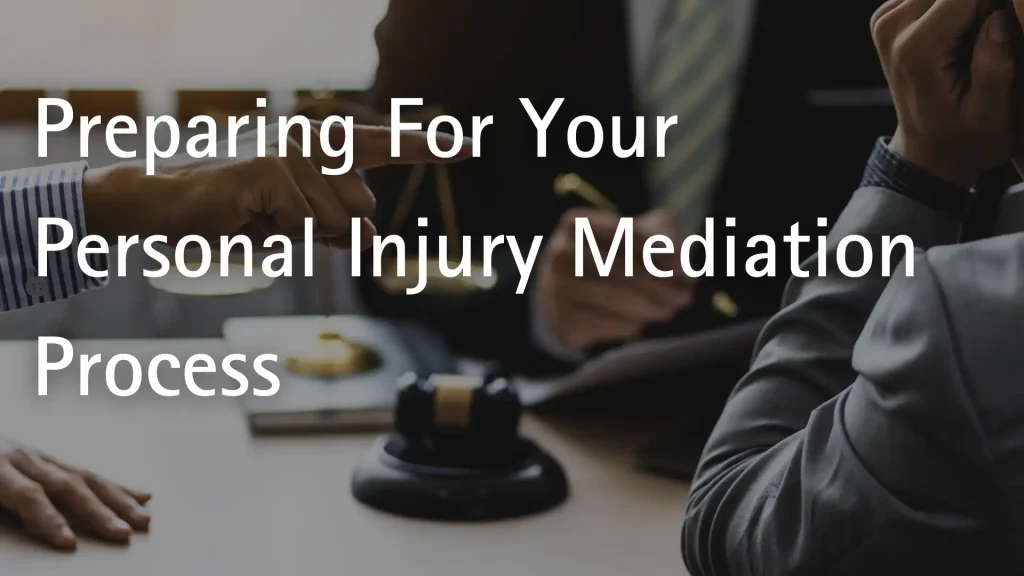
Although personal injury mediation may be voluntary in some Montana courts, most Montana judges require the parties to undergo the mediation process before trial. If you are involved in a case that may require mediation, you should be aware of the process and what to expect. A skilled Kalispell personal injury attorney can explain how it all works and what’s required in your case.
The Mediation Process
Mediation typically happens after the parties have attempted to settle on their own but before the case goes to trial. Mediators do not have the power to make decisions about the case. They are not judges. Their job is to facilitate communication between the parties and make suggestions to enable them to reach common ground.
In mediation, each party presents its case and explains its position. The mediator may ask questions to clarify information and hear all perspectives. At that point, the parties usually go into separate rooms, and the mediator acts as a go-between, taking settlement demands and offers back and forth. If the parties do not settle, the case will continue to trial.
Pre-Mediation Activity
Before a mediation session begins, all parties must sign a confidentiality agreement. The parties cannot use information obtained during meditation at trial. Both parties should go into mediation with an open mind.
The highly skilled personal injury attorneys at Travis & Brann, PLLP will prepare for your mediation in several ways. We’ll prepare an opening statement. In mediation, the plaintiff and the defendant each present opening statements to set out the facts and their theory of the case. You and your attorney from our firm will have discussed possible settlements and agreed upon items they would be willing to concede in favor of more important types of losses.
Tips for Successful Personal Injury Mediation
However, there are some things that you can prepare for on your own before mediation.
- Prepare a summary of all the events that took place during the accident. Personal injury victims should enter mediation with a clear understanding of the facts of the case. The summary can be used as a reference if you need clarification.
- Be prepared to list how the injury has impacted your life. Address your medical bills, chronic pain, and time away from work. Also, address any residual pain and suffering you are experiencing from the accident.
- You should know what you are seeking to gain from mediation. After discussing your case with your attorney, you should know the realistic compensation available. It would be best if you went into mediation knowing the value of your case. This prevents you from settling for an amount that is too low but also allows for reasonable expectations for the settlement.
- You should dress professionally.
- It is vital to keep your emotions in check. Do not get angry at the defendant or the mediator. The mediator is an impartial party, and creating a hostile environment with the defendant may harm the negotiation process and delay your settlement.
Contact a Skilled Personal Injury Lawyer for Help Today
Being well-prepared for mediation can increase your chances of reaching a favorable settlement. Remember to stay calm and focused throughout the process. A clear understanding of your case, potential compensation, and desired outcome will help you effectively communicate your needs and work toward a resolution.
If you’re considering mediation for your personal injury case, Travis & Brann, PLLP can provide the experienced legal representation and guidance you need. Our skilled Kalispell personal injury attorneys will work diligently to protect your rights and help you achieve the best possible outcome for your case. We have years of experience negotiating with insurance companies and will work hard to get you the settlement you deserve for your injuries. Call us today at (406) 752-7550 or contact us online to schedule a consultation.
Related Posts:
Rental Car Cost Coverage After an Accident Explained
Bicycle Accident Claims & Helmet Laws in Kalispell, MT
Why You Shouldn’t Handle a Slip-and-Fall Case on Your Own
The Importance of Legal Representation After a Workplace Injury
How Is Pain and Suffering Calculated in Kalispell, MT?
What Happens After a Personal Injury Settlement Offer in Montana?
Understanding Claims for Traumatic Brain and Spine Injuries in Montana
What Happens Next If Mediation Fails? Legal Options Explained
Understanding Emotional Distress Claims in Personal Injury in Montana
Understanding Workers’ Compensation vs. Personal Injury Claims in Montana
The Role of Expert Witnesses in Personal Injury Cases in Montana

